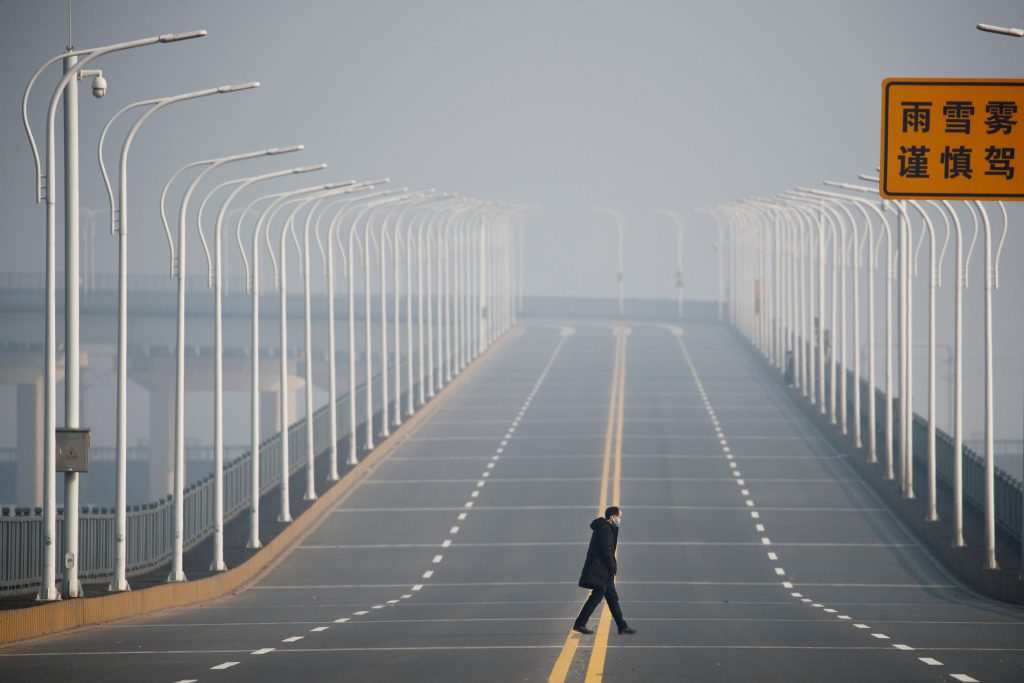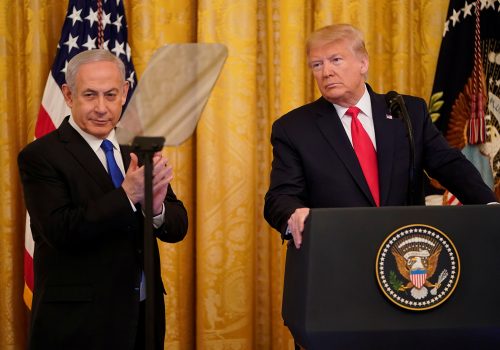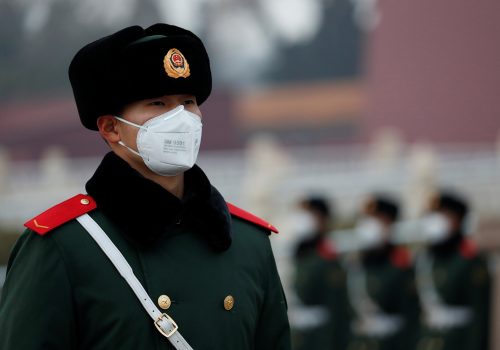The World Health Organization has made it official: Coronavirus is the first “global health emergency” of our new era of major power competition. Thus, its ripples won’t stop at global markets but will also reach geopolitics.
It’s already clear that the coronavirus impact, though too early to fully measure, will be significant on Chinese and global supply chains, markets and economies; on the legitimacy and the trust enjoyed by the Chinese Communist Party with its own people; and on Asian regional politics and US-Chinese relations, where trust already was in such short supply.
So, it’s not too early to contemplate the potential, unintended consequences of the virus, thought to have originated in a Wuhan wildlife wet market yet already having resulted in more than 250 deaths and nearly 12,000 confirmed cases in all regions of China and 21 countries around the world. The cases now include the first person-to-person transmission in the United States, and a rare, new State Department level four advisory of “do not travel” to anywhere in China.
So even in a heavy news week during which the United Kingdom left the European Union, the United States announced a new Mideast peace plan, and the Senate advanced its impeachment trial of President Trump, none of that beats the potential of coronavirus for global impact.
Get the Inflection Points newsletter
Subscribe to Frederick Kempe’s weekly Inflection Points column, which focuses on the global challenges facing the United States and how to best address them.
The first effect, and perhaps the easiest of them all to measure, will be the hit to Chinese and other markets and economies, at a time when the world in any case was wary of a “black swan” event that might nudge it toward recession after the world economy’s worst year in a decade in 2019. US markets convulsed Friday, falling by more than 650 points.
The impact is all the greater as it coincides with what was already a slowing Chinese economy. It comes at a time when American and other companies were already shifting supply lines from China to elsewhere due to new tariffs and trade tensions. The virus will serve as another reminder for companies to more rapidly diversify their supply chains.
Following the Phase One trade deal with the United States, the coronavirus hit also undermines the whiff of bilateral trade optimism that had buoyed markets. It has quickly changed the narrative and increased the odds of a global market downturn in 2020. That’s particularly true among emerging markets and investments in commodities from oil to copper, both down double-digits.
Should the crisis stretch out for another month, and experts now consider it more likely than not to reach well into summer, the cost could be a two-percentage point decline in Chinese growth to 4% or lower this year. First quarter growth figures in China could fall to 2% year-on-year – which would be the lowest in decades, and down from 6% in the last quarter of 2019.
The impact on the global economy will be far more significant than during the SARS pandemic of 2003, which is estimated to have provoked a global economic loss of $40 billion and a hit of 0.1% on global GDP. That’s because China’s share of global GDP has quadrupled since then to 16% from 4% – and fully a third of global growth has been coming from China.
Tourism markets will take an outsized hit, as about 163 million Chinese tourists in 2018 accounted for nearly a third of travel retail sales worldwide. Thailand, for example, has already reduced its 2020 GDP forecast, based on expected revenue losses of as much as $1.6 billion from 2 million fewer Chinese visitors, should travel restrictions continue for a further three months.
More difficult to calculate will be the impact of the virus on Chinese President Xi Jinping’s legitimacy and that of his Communist party.
Wall Street Journal columnist Daniel Henninger referred to a rare public apology by Wuhan’s mayor Zhou Xianwang as “an epitaph” for the People’s Republic of China. “As a local government official,” said the mayor in explaining his slow response, “after I get this kind of information I still have to wait for authorization before I can release it.”
Wrote Andy Xie in the South China Morning Post: “Wuhan’s failure shows up the systemic weaknesses in the top-down structure of the China model, where everyone in the hierarchy is accountable to someone above.”
“Though the economy will bounce back when the virus fades,” writes The Economist, “the reputation of the Communist party and even of Xi Jinping may be more lastingly affected. The party claims that, armed with science, it is more efficient at governing than democracies. The heavy-handed failure to contain the virus suggests otherwise.”
That brings one to the hardest impacts to calculate of all, and that is the geopolitics of coronavirus.
What’s known is that Chinese leaders’ confidence in their own rise, and the competitiveness of their alternative authoritarian capitalist economic model grew enormously during and in the aftermath of the global financial crisis of 2008 and 2009.
Could the coronavirus have the reverse impact? The virus may or may not be overblown as a pandemic threat, but President Xi’s legitimacy in any case will be tested in his handling of the emergency, given how much power has been concentrated in his own hands. Conversely, his authority could grow if he’s perceived at handling the crisis well.
Meanwhile, the Atlantic Council’s Digital Forensic Research Lab this week spotted what might be a sneak preview of how the global finger-pointing might shift through disinformation should the crisis deepen.
Several narratives have spread first on extreme Russian nationalist sites and to the Chinese internet, blaming the U.S. for the coronavirus outbreak. They’ve now been amplified by the Russian mainstream publications Pravda and Izvestiya. It’s reminiscent of Operation Infektion, when Russian propaganda during the Cold War tried to pin the spread of the AIDS virus on the United States.
At the same time, The Washington Times quoted a former Israeli military intelligence officer, who has studied Chinese biological warfare, that the coronavirus may have originated in an advanced virus research laboratory in Wuhan.
Mercifully, Chinese authorities are taking full responsibility thus far, although without being definitive about the virus’ origins, and U.S. officials thus far have praised the efforts.
That said, this is a story in its first stages. How it unfolds will help shape the contours of our age.
This article originally appeared on CNBC.com
Frederick Kempe is president and chief executive officer of the Atlantic Council. You can follow him on Twitter @FredKempe.
Must-reads from a world in transition
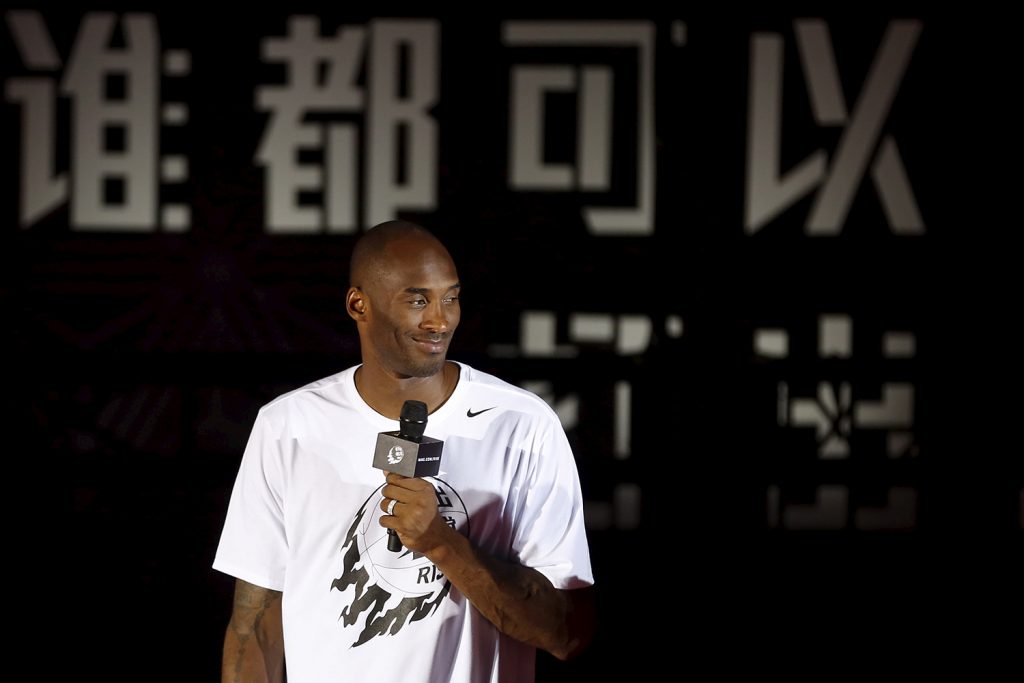
It was a heavy news week including Brexit, a Mideast peace plan, the British decision to keep Huawei as a 5G provider, the Senate’s decision not to hear impeachment witnesses (and thus speed President Trump’s acquittal) and basketball star Kobe Bryant’s tragic death.
This week’s choices touch on that news but focus even more compelling reporting and writing on other subjects.
Thus, the top reads below include three EU leaders’ moving farewell after 47 years to the United Kingdom, and their call upon other EU members to make more of their union. Also read the FT’s look at what two crucial tech stories say about Europe – the UK’s decision to go with Huawei despite American protests and why Germany’s top 30 companies have a combined value that is less than Apple.
Unusually, this week provides three “must-reads.”
Much has been written about Kobe Bryant this week, but this one was new to me: the story behind his run-away popularity in China. Also don’t miss historian Jill Lepore’s opus in the New Yorker on how democracies disappeared in the 1930s (with reflections on today). You’ll think you’re reading Graham Greene as you savor Economist reporter Nicholas Pelham’s endearing, funny and insight look at his long captivity this year in Iran.
1. EUROPE WITHOUT THE UK
A new dawn for Europe
Presidents Charles Michel, David Sassoli and Ursula von der Leyen
The three top leaders of the European Union’s key institutions bid farewell to the UK in a message published across the continent. At a moment of major power competition that is testing democratic values everywhere, they speak of a “renewed sense of shared purpose.”
“In an era of great power competition and turbulent geopolitics, size matters,” they write. “No country alone can hold back the tide of climate change, find the solutions to the digital future or have a strong voice in the every-louder cacophony of the world.
“But together, the European Union can.” Read More →
2. EUROPE’S TECHNOLOGICAL CHALLENGE
Huawei: the indispensable telecoms company
James Kynge and Nic Fildes / THE FINANCIAL TIMES
The Apple effect: Germany fears being left behind by Bit Tech McGee and Guy Chazan / THE FINANCIAL TIMES
The FT pieces above underscore the two technological challenges for Europe, one from China and the other from the US, as the continent faces the danger of being a technological also-ran.
For the UK this week, the big story was the country’s decision to shrug off American warnings and give China’s Huawei a big role in its next generation telecoms infrastructure.
The FT reporters explain that what drove the decision says much about China’s emerging tech primacy, the failure of the US to provide a viable alternative and “the UK’s own uncertain circumstances – in the week that it is finally leaving the EU.” Read More →
From Germany, FT reporters reflect on what it says about the European Union’s most important country that it’s top 30 companies combined value is less than that of Apple. Hint: it has more to do with venture capital than the talent of its people. Read More →
3. WHY CHINA LOVED KOBE BRYANT
Kobe Bryant Was the United States’ Best Ambassador in China
Lauren Teixeira / FOREIGN POLICY
The hashtag about Kobe Bryant’s death on Weibo, China’s Twitter, had 3 billion views by the midafternoon following his passing, exceeding for a time even discussion about the deadly coronavirus.
Even the People’s Daily, the Communist party’s mouthpiece, weighed in: “His fearless spirit of fighting, both on the court and in real life, is worth remembering.”
What explains this, in part, is the basketball’s significant role in the country almost since YMCA missionaries brought it to China in the 1890s. Its popularity grew after the 7-foot-6-inch star Yao Ming joined the Houston Rockets as starting center in 2002. Of all NBA players, however, Bryant became the most popular in China – and his jersey even outsold that of Yao.
It didn’t hurt that Bryant stayed out of Chinese politics, unlike Houston general manager Daryl Morey’s support for Hong Kong demonstrators. Read More →
4. HOW DEMOCRACY DIES
The Last Time Democracy Almost Died
Jill Lepore / THE NEW YORKER
Harvard historian Jill Lepore’s long-form look at how democracy almost died in the 1930s acts as a wakeup call for those who might shrug off the rising dangers to democracy today.
“In the nineteen-thirties,” she writes, “you could count on the Yankees winning the World Series, dust storms plaguing the prairies, evangelicals preaching on the radio, Franklin Delano Roosevelt resident in the White House, people lining up for blocks to get scraps of food, and democracies dying, from the Andes to the Urals and the Alps.”
Her piece tracks why democracies died, how that resulted in and was stopped by World War II, and what similarities she sees in our times. Read More →
5. OUR MAN IN TEHRAN
Trapped in Iran
Nicolas Pelham / 1843 MAGAZINE (THE ECONOMIST)
This reads like a Graham Greene novel.
The Economist’s Middle East correspondent Nicholas Pelham weaves a rich tale, capturing detention, interrogations and long captivity in Iran – some of that in prison and some with monitored movement from a modest hotel.
All along, he grows to know Iran and his minders intimately. It is a story rich with color and spiced with humor.
“My mind spun all sorts of fantasies,” he wrote. “I drew up a cost-benefit analysis of my circumstances. If word of my capture got out, it could damage my chance of early release but boost sales of an update to my book. My jailer, who until now had communicated entirely in grunts, might teach me Farsi. The spartan diet might help me lose weight.” Read More →
Person of the Week
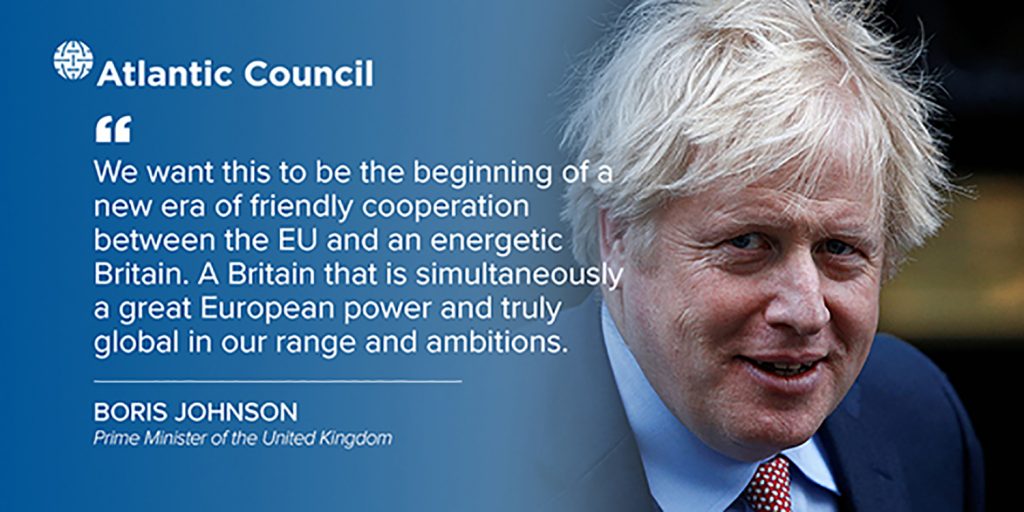
Atlantic Council Top Reads
Image: A man who arrived from Hubei province crosses the Jiujiang Yangtze River Bridge near a checkpoint in Jiujiang, Jiangxi province, China, as the country is hit by an outbreak of a new coronavirus, January 31, 2020. REUTERS/Thomas Peter
